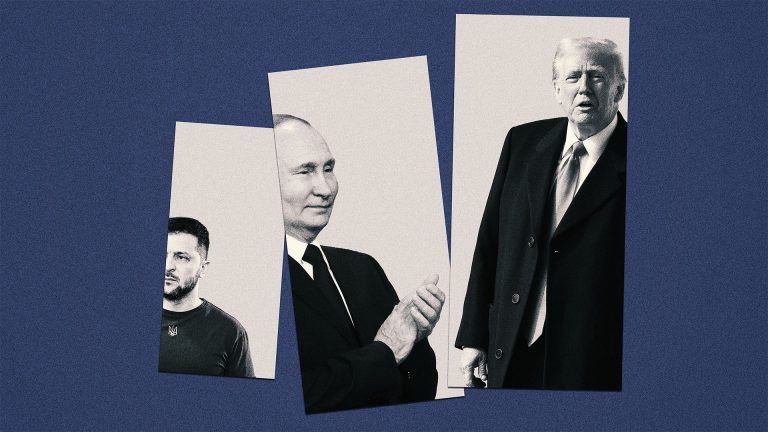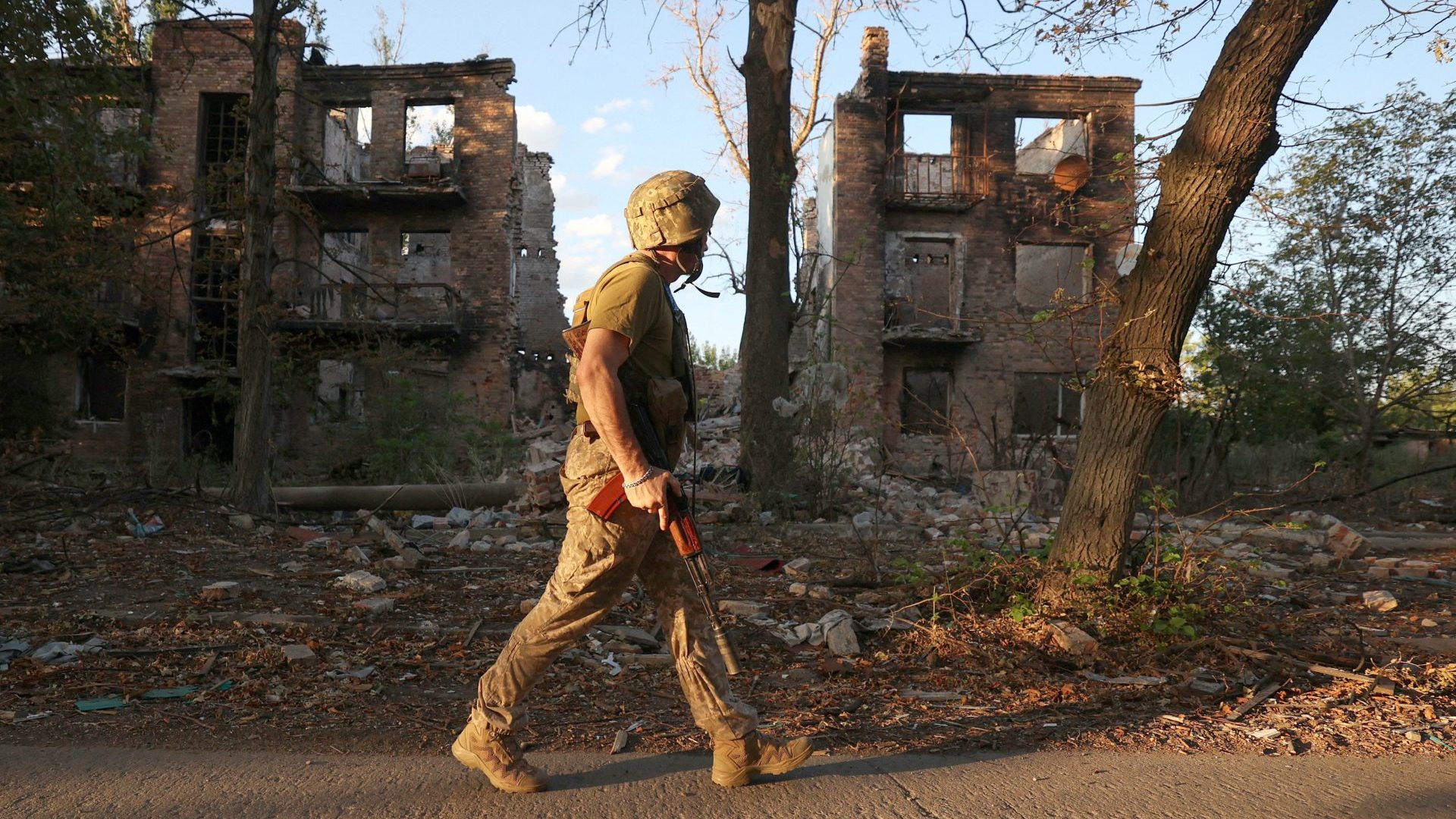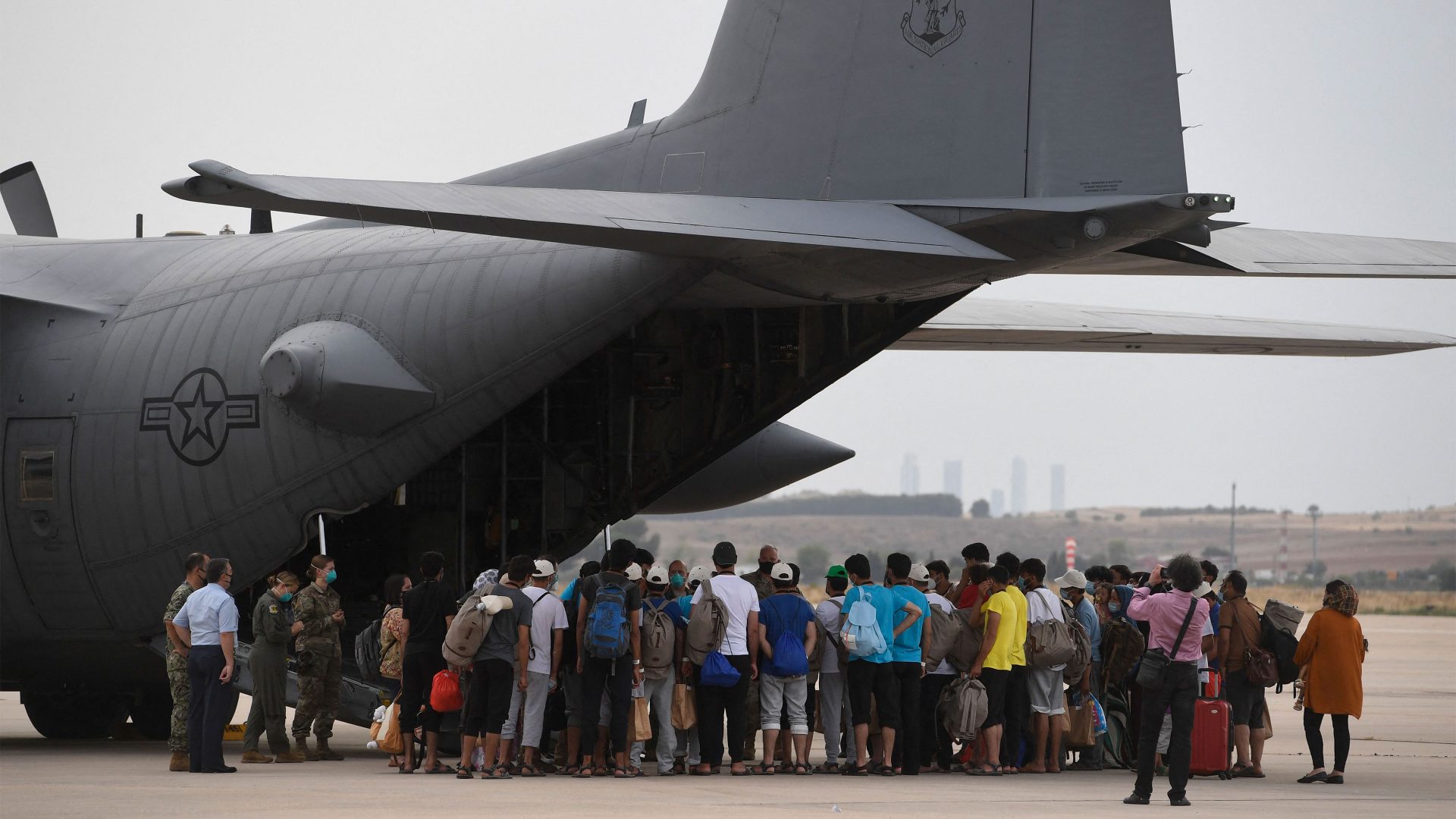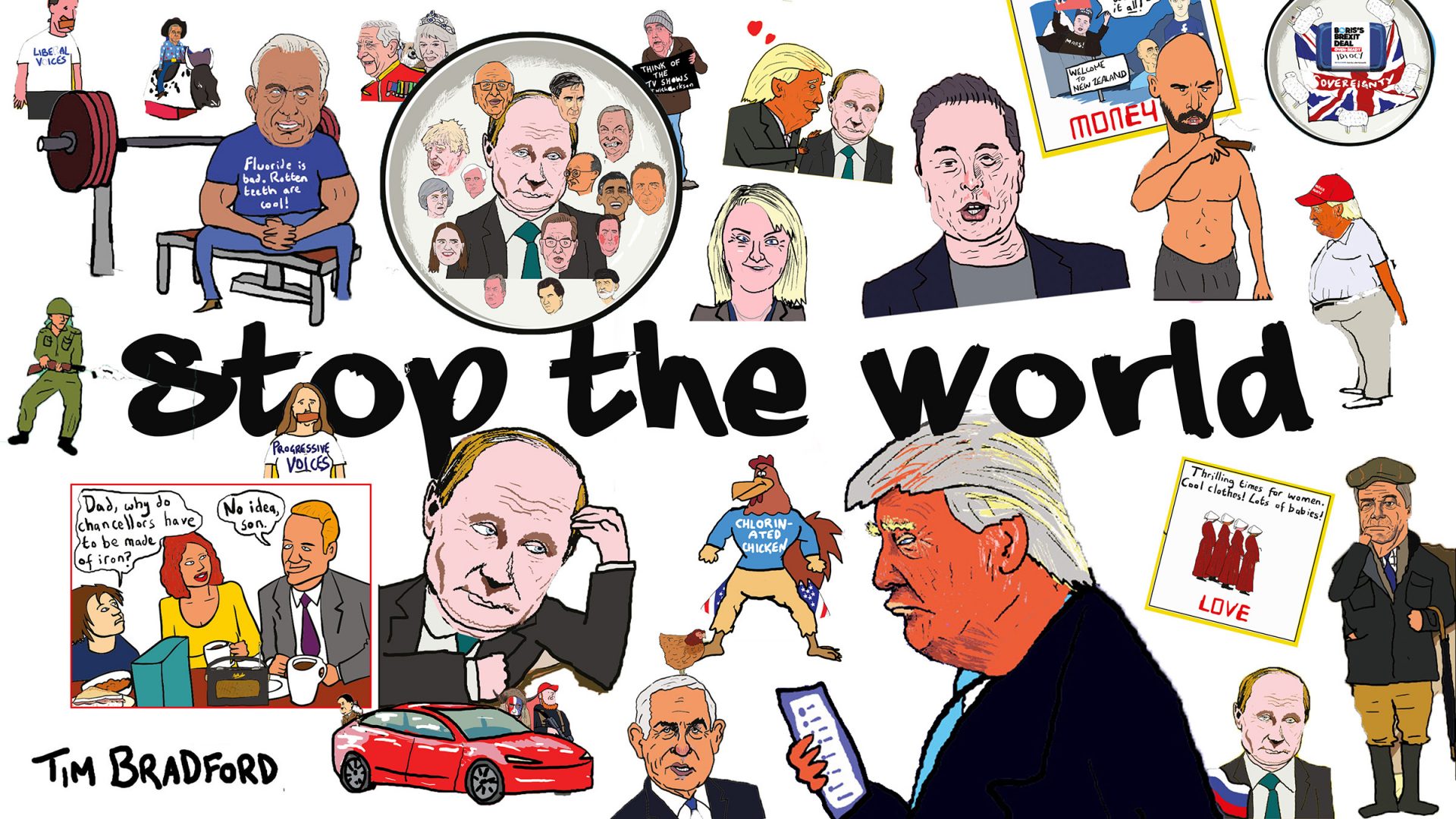It started on the eve of independence day. In an hour-long phone call with Donald Trump, Vladimir Putin told the US president that Russia had played a major role in America’s war of independence, offered to send him a movie about traditional values, chatted about mutually beneficial business ventures… and then flatly insisted that “Russia would strive to achieve its goals” in Ukraine. That night Russian forces staged the biggest strike of the war so far, launching 539 long-range drones and seven ballistic missiles at Kyiv.
On July 4, Trump snapped. He told reporters he was “very disappointed” with Putin and in a call to Ukraine’s president Volodymyr Zelensky urged him to go on the offensive, reportedly asking if he could hit Moscow and St Petersburg. On July 14, Trump announced he would place 100% tariffs on goods from countries still trading with Russia, and rubber-stamped a proposal from European states, whereby they would buy up to 17 batteries of US Patriot missiles and hand their own Patriots to Ukraine.
Given that, just two weeks before, the US had summarily suspended arms shipments to Ukraine, that is a massive change. The sanctions don’t kick in for 50 days, leaving Trump ample time to chicken out. But I understand weapons supply flights began immediately, as did US participation in the “coalition of the willing” talks, from which they had been absent.
Trump’s aim is still to secure a negotiated peace that would hand some of Ukraine’s sovereign territory to Russia; and he is still claiming to be on “nobody’s side”. But his change of heart opens the possibility that Ukraine, with a mixture of arms, intelligence and goodwill from Washington, could inflict defeat on Putin. Because at this point victory simply means not losing; not seeing the front line collapse; not seeing Kyiv in flames each night; and for Ukraine’s people it means holding on amid enormous psychological strain.
“During every night of bombing, at 4am it can feel like you are in a horror movie,” says Lesia Orobets, a former Ukrainian MP who leads the Sky Shield Initiative, which calls for western air defence to be deployed to protect her country’s nuclear power stations. “There are bombs, fires, people hiding in subways, explosions non-stop for four hours. But by 10am it’s a European city, with cafes open, people speeding to work, kids playing. The cities are becoming resilient to this.”
On the front line, however, Russia is making gains. It is throwing barely trained soldiers at the Ukrainian trenches in golf buggies and on motorbikes, while the two sides engage in an ever-escalating battle with drones. The fields are strewn with thin fibre-optic wires, used by both sides to avoid jamming, which themselves are causing horrific injuries.
“At the front it is not easy at all,” says Orobets, who is in direct contact with members of her family fighting there: “We are short of men, short of effective artillery, that’s why 70-80% of the damage done to the Russians has to be done by drones. Unfortunately Russia has become very good at scaling its drone technologies, so our own defence production needs huge help in scaling up.”
Though she welcomes the offer of extra Patriots, and Keir Starmer’s announcement last week that military designs for a force on the ground are well advanced, Orobets insists the whole western model of arming Ukraine needs to change.
Only Denmark, which finances production of howitzers directly in Ukraine rather than trying to buy elsewhere and ship them in, is getting maximum bang for its bucks, she says: “It’s not only the most effective way to spend money, because Ukrainian production is affordable and fast, but logistically we saved months and millions of euros.”
But beyond the problem of keeping Ukraine in the fight, western leaders now face three big challenges. The first is to make the coalition of the willing resilient to further meltdowns in the White House. The second is to align the military strategies being worked up by their defence staffs to a wider European-led strategy to defeat Russia. The third is convincing their own populations of the severity of the threat – because few of those who understand it believe it can be met by spending 3.5% of GDP on defence.
Keeping Trump in the fight necessitates understanding what caused his sudden volte-face. Marc De Vore, a senior lecturer in international relations at St Andrews University says: “the steady beat of Putin’s behaviour, making Trump feel viscerally undermined and humiliated is probably the biggest single factor; the second might be a bill in the US Senate that threatens to impose 500% tariffs”.
The Senate bill has 85 signatories, and broad congressional support. If it were to get to the floor for voting it would likely pass, undermining Trump’s stature on Capitol Hill.
De Vore, who for two years advised the Foreign Office on its response to Ukraine, says: “Trump’s flip-flopping does not change the fundamentals – that since his election this is now Europe’s war. So the question for European leaders is how to capitalise on this shift, which may be temporary, and to seek ways to lock America into the new position”
Suggested Reading

Ukraine’s defiance is rarer than minerals
He believes, for example, that the coalition should activate Emmanuel Macron’s suggestion of a boots-on-the-ground training mission inside Ukraine itself, and that Germany should at last provide its long-withheld Taurus missiles, adding: “Maybe the European leaders should pose with a comically large cheque made out to Raytheon, showing Trump they are putting the money up front to gain priority access to new Patriots”.
Ultimately, however, the coalition needs to decide what it is actually willing to do. “Military planning is useful,” says Toby Dickinson, a former RAF officer who is now a defence policy consultant, “but it is not currently being conducted towards a grand strategic political goal”.
He believes the UK could contribute strongly to an air defence mission over Ukraine once a ceasefire is in place, but that the question remains academic for as long as western powers are unwilling to give Ukraine the means to defeat the aggressor.
Though the three leading European countries – Britain, Germany and France – all now understand that the task of securing a Ukrainian victory is theirs, not Washington’s, Dickinson points out: “None has been prepared to pull the big lever marked ‘war economy’, and because of that there’s no agreed outcome beyond the Biden-era goal of not losing; without grand strategic thinking there is no political momentum driving military planning”.
Instead, we got the fourth annual Ukraine Recovery Conference, held in Rome on July 10-11, with hundreds of delegates from business, civil society and EU governments. The conference saw £13bn pledged to Ukraine, with more than 200 agreements signed. But Victoria Vdovichenko, who heads the Future of Ukraine programme at Cambridge University’s Centre for Geopolitics, wants to see that goodwill turned into much tougher European sanctions targeting Russia’s so-called shadow fleet.
“It’s good that the rhetoric of the clash in the Oval Office is gone,” she says, “but the Europeans now have to act in the knowledge that Americans won’t be there on the classic terms of the past 70 years”. At the Rome conference, Vdovichenko presented a plan to create a maritime coalition to identify and interdict the foreign-flagged tankers Russia is using to ship its oil, and to block those vessels from allied territorial waters due to the threat they pose to undersea pipes and cables.
The plan, which would effectively close the Danish straits and the English Channel to Russian oil and gas cargoes, would be a step change and, warns Vdovichenko, would likely trigger increased Russian aggression against western navies. Sanctions and diplomatic pressure should therefore be applied against the states that are currently flagging Russian cargo vessels. Vdovichenko says there is ample legal justification under the UN Convention on the Law of the Sea (UNCLOS), which specifies that the right of innocent passage is guaranteed only for ships whose movement is “continuous, expeditious and without prejudice to the peace and good order of the coastal state”.
The question facing British policymakers, then, is not whether to commit troops and warplanes to a peace enforcement mission. That mission cannot exist until Ukraine fights Putin to a standstill and begins to inflict long-range damage on Russia’s defence industry through the precision strikes Trump mooted with Zelensky.
That means more shells, more artillery, better drones and a European defence industry attuned to production and innovation at the wartime pace of its Ukrainian counterpart. It might also, as Vdovichenko suggests, mean western navies stopping and searching Russian ships threatening our infrastructure much more assertively.
But that, in turn, needs political willpower and vision. On the same day Trump announced new sanctions, Sir Patrick Sanders, chief of the general staff until 2023, told the Telegraph that Britain should prepare for war with Russia within five years and begin immediately building the bunkers needed to survive it.
Yet neither Starmer, Macron nor Germany’s chancellor Friedrich Merz can bring themselves to state such a prognosis – at least not publicly. In the first place, their electorates are just not in a place to accept it: the bars and restaurants currently buzzing amid the European summer heatwave are filled with young people for whom Ukraine barely figures in the conversation.
Secondly, during the seven decades of American leadership of the western alliance, “grand strategic” thinking atrophied in Europe to the point where even to use the phrase is to invite embarrassed silence among civil servants and incomprehension from senior politicians. Since 1948 British grand strategy has basically been to keep America invested in the defence of Europe while retaining enough freedom of action to conduct sporadic “wars of choice” like Iraq, Afghanistan and the Falklands. But American certainty has gone, and few British politicians have been trained to answer the kind of questions that situation poses.
The government’s new National Security Strategy states the UK will in future reject a “defensive crouch” and be prepared to take pre-emptive action even where it involves risk and a choice between “values and interests”. But it does not specify an end state to Britain’s intervention in the escalating crisis, other than that we are stronger than at the start of it.
Building a broader understanding of the strategic reasoning among politicians of all parties is therefore urgent. Even more so is educating the public about what lies ahead.
One senior military figure put it to me like this: “In phase one of any war with Russia, all the exquisite kit gets destroyed in maybe the first 30 days, and the professional armies exhaust their stockpiles; phase two is when we lob drones at each other’s factories, in massive numbers with increasingly sophisticated AI, and recruit citizen armies; phase three comes when one side’s science and industrial base begins to produce solutions that devastate the other’s”.
Suggested Reading

Putin’s tortured prisoners of war
Nobody in their right mind would want to start such a war. The problem is that Putin’s entire economy is now geared to phase two, and his twisted propagandists fantasise publicly about inflicting phase three using tactical nukes. Meanwhile the British Treasury – just as it did in the 1930s – is still applying peacetime fiscal rules in a situation of geopolitical peril, limiting the rearmament debate to “what can we afford” rather than “what do we need?”
Putin can be beaten because his strategy for 2025 was premised on three assumptions: that Trump could be strung along in folksy phone calls; that the Europeans wouldn’t step into the breach; and that in the meantime Russia could make breakthroughs at the front line, seize territory and dictate the peace terms.
“The first two conditions held for about eight months,” says St Andrews’ De Vore “but the third never appeared. As a result Putin is desperate – that’s why he’s switched to a terror bombing campaign against civilians”. That, in turn, has triggered Trump into a change of heart while failing to break the resolve of Ukraine’s civilian population.
Beyond all the specifics demanded by western and Ukrainian experts – the Patriots, the artillery, the switch to the “Danish model” and a crackdown on the shadow fleet – what’s needed is a change of attitude among Europe’s voters.
“To beat Putin,” says Orobets in Kyiv, “we need UK society, and the other societies in the coalition of the willing, to accept that the threat is real, and that hybrid warfare is already going on in their territories.” Yet that’s a truth the political leaderships don’t seem ready to tell, she complains: “If your society is not aware of the threat, you can’t gain permission to do more.”
Until that changes the west will go on holding “recovery conferences” for an economy that cannot recover, its defence chiefs will go on planning for a peace mission that can never happen, and its navies will watch passively as Russian contraband cargo sails right by under their noses.
So it is up to Starmer, Merz and Macron to seize the next 50 days, pouring offensive weapons, defence investment and on-the-ground training missions into Ukraine, and imposing their own sanctions in a way that demonstrates they are capable of strategic autonomy.
Because what Trump’s mercurial administration shows above all is that we in Europe are going to need it.




